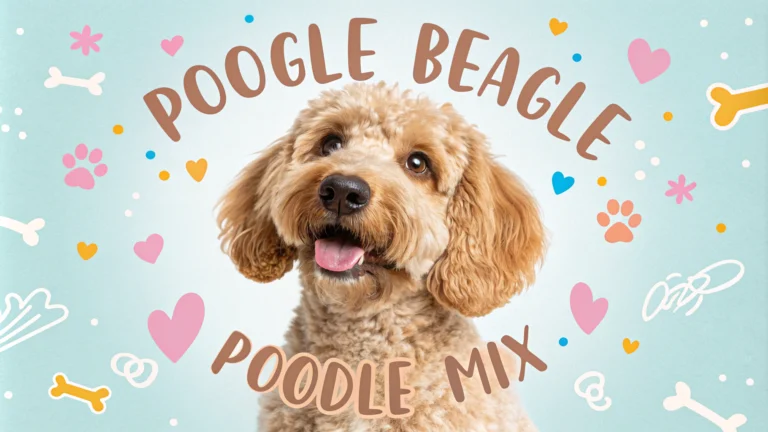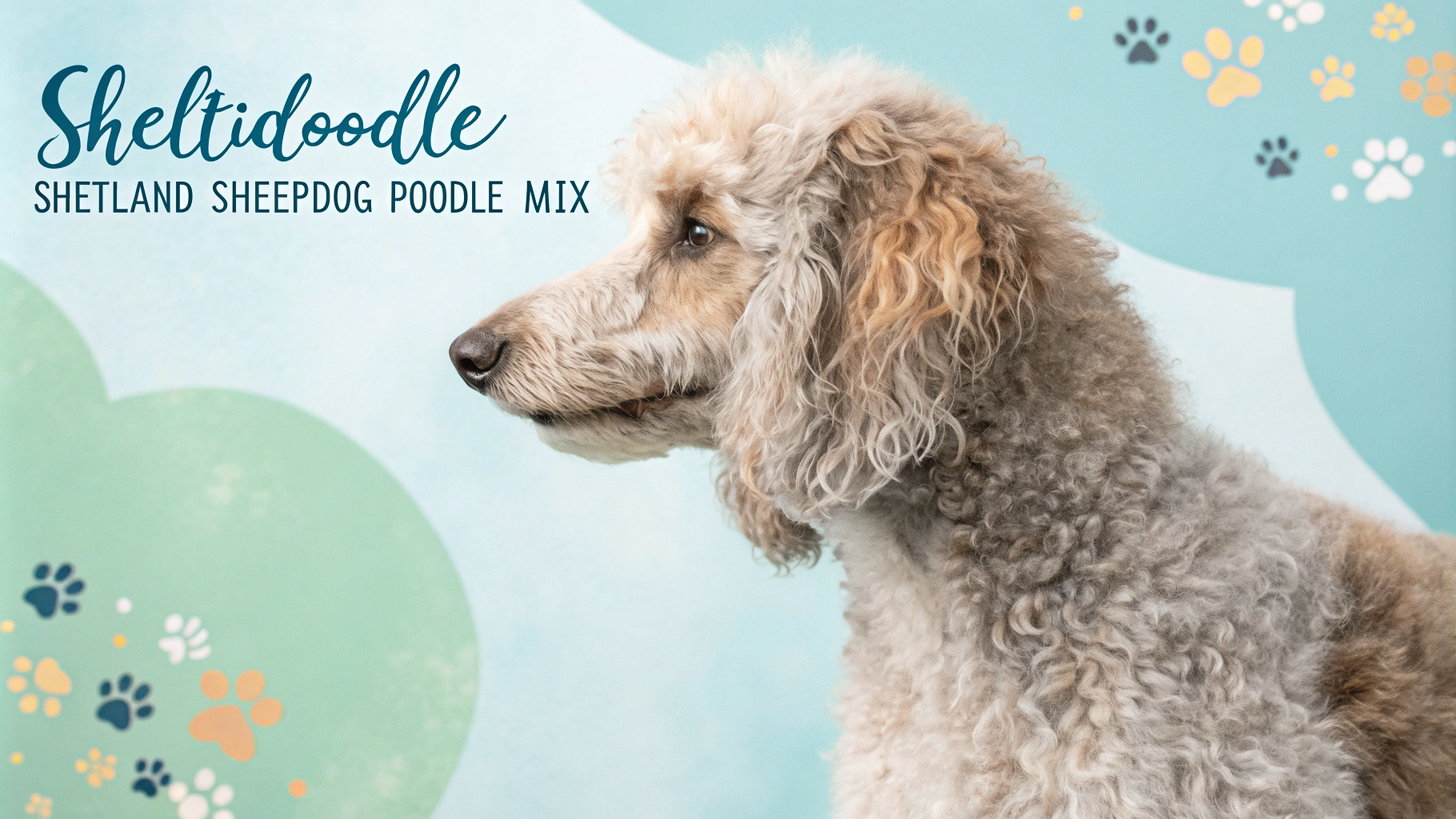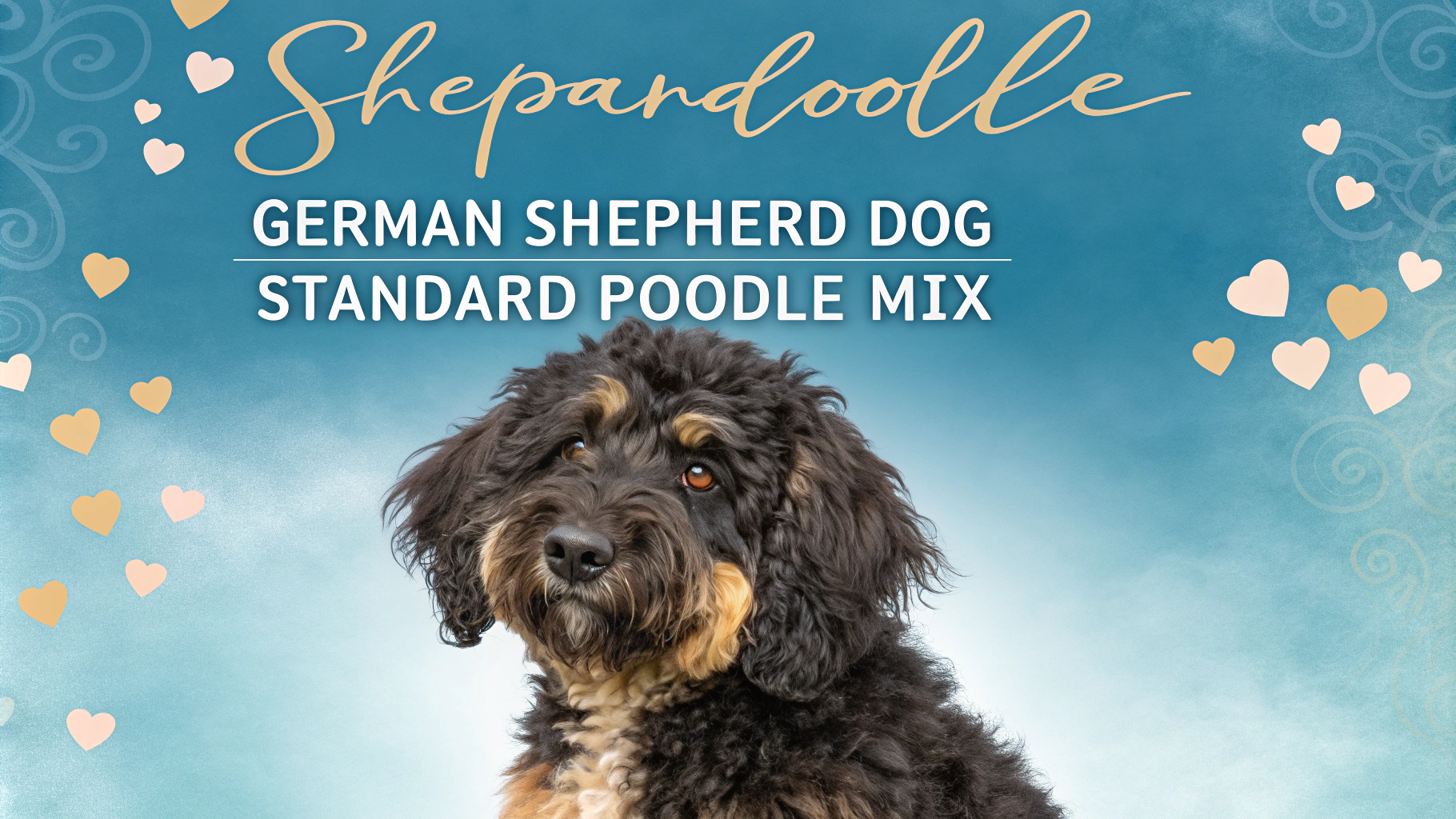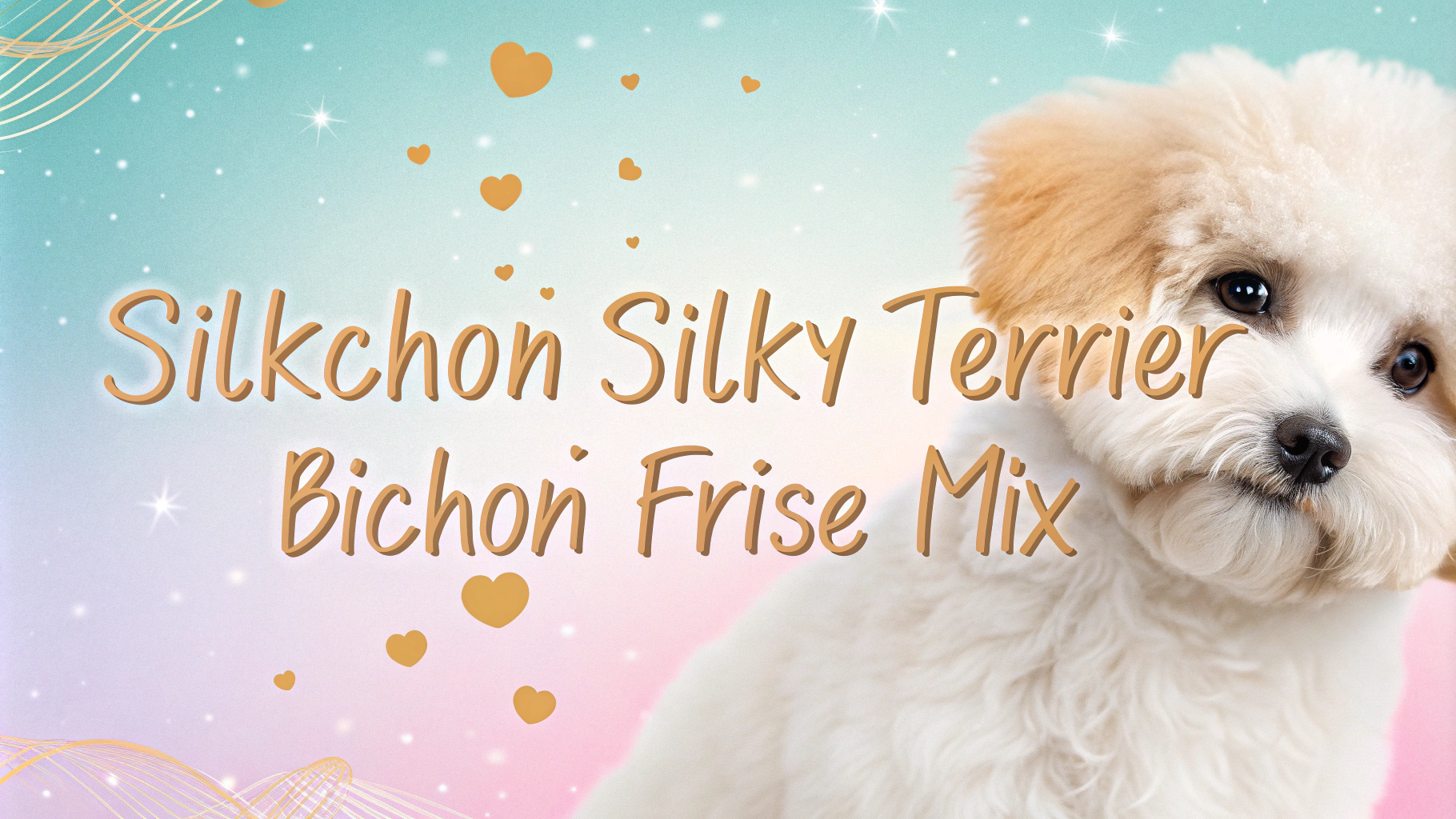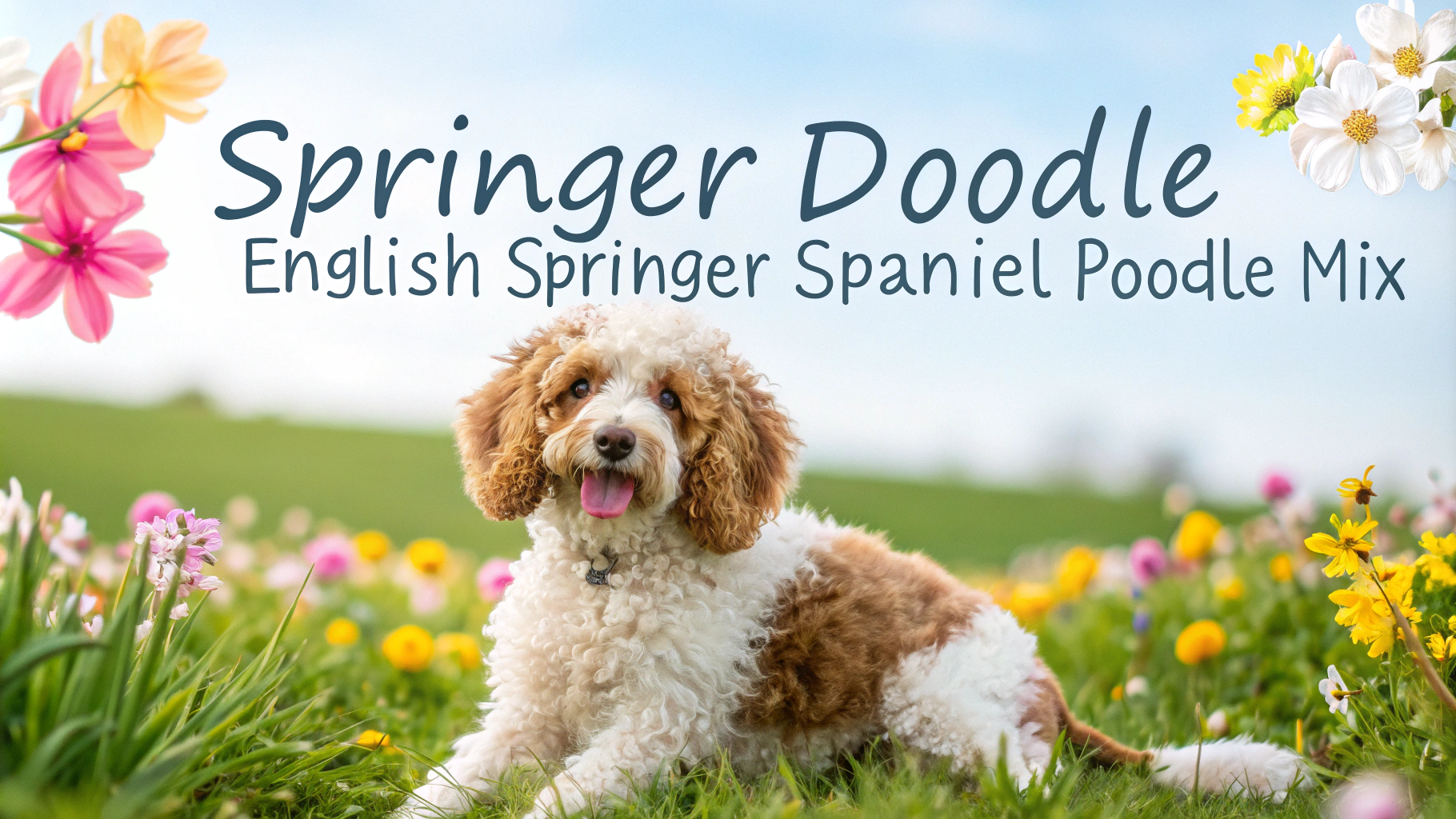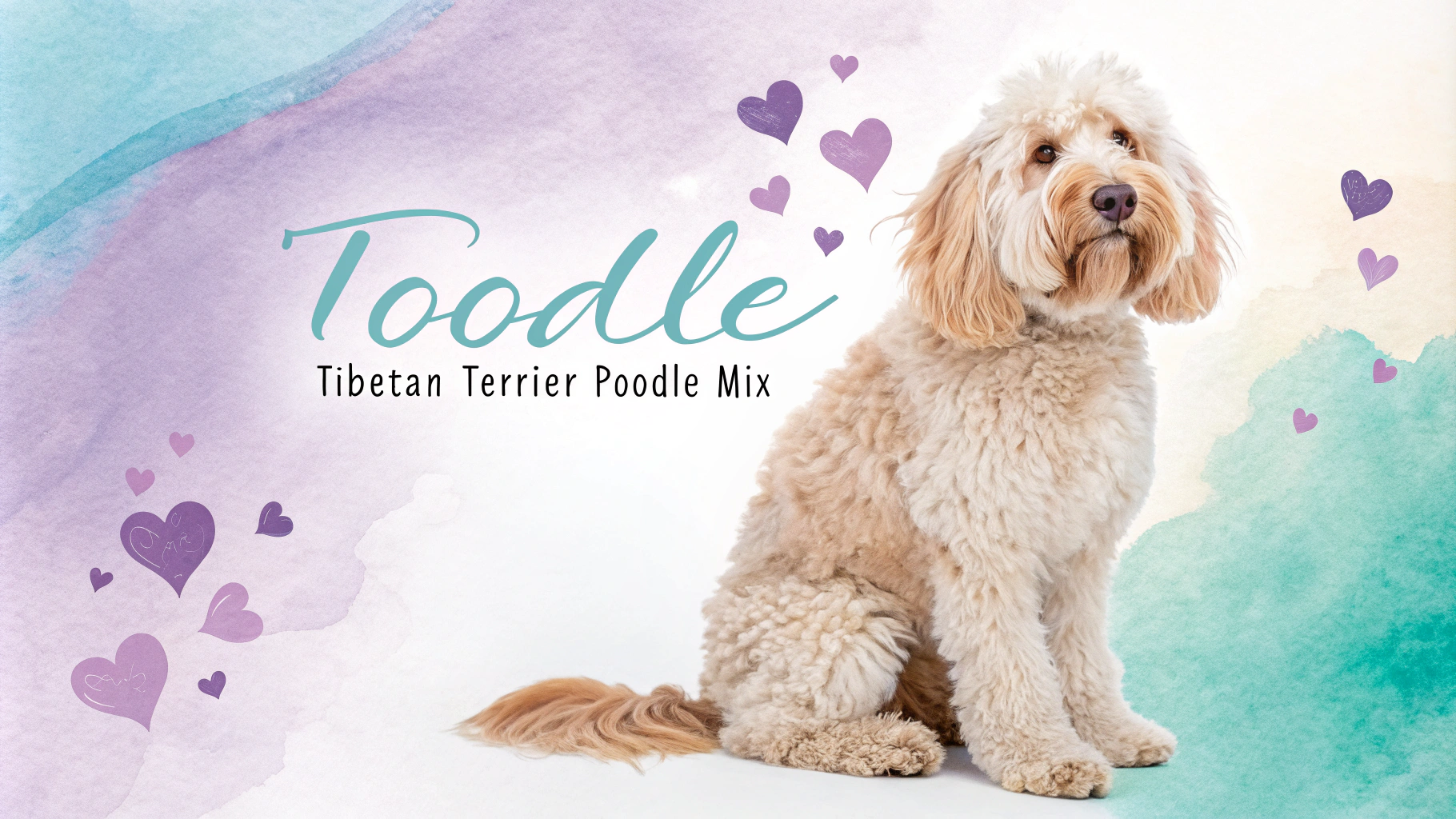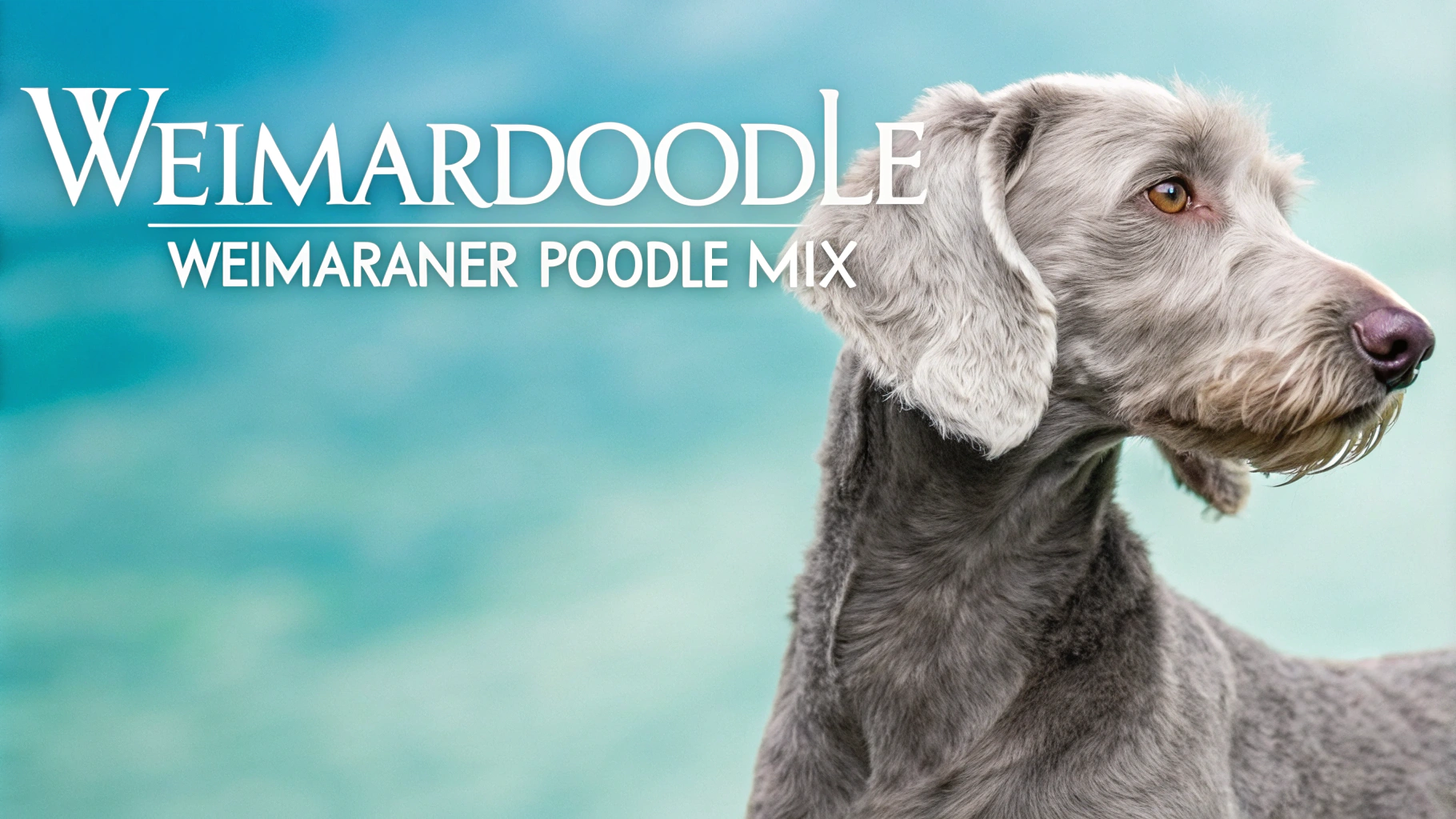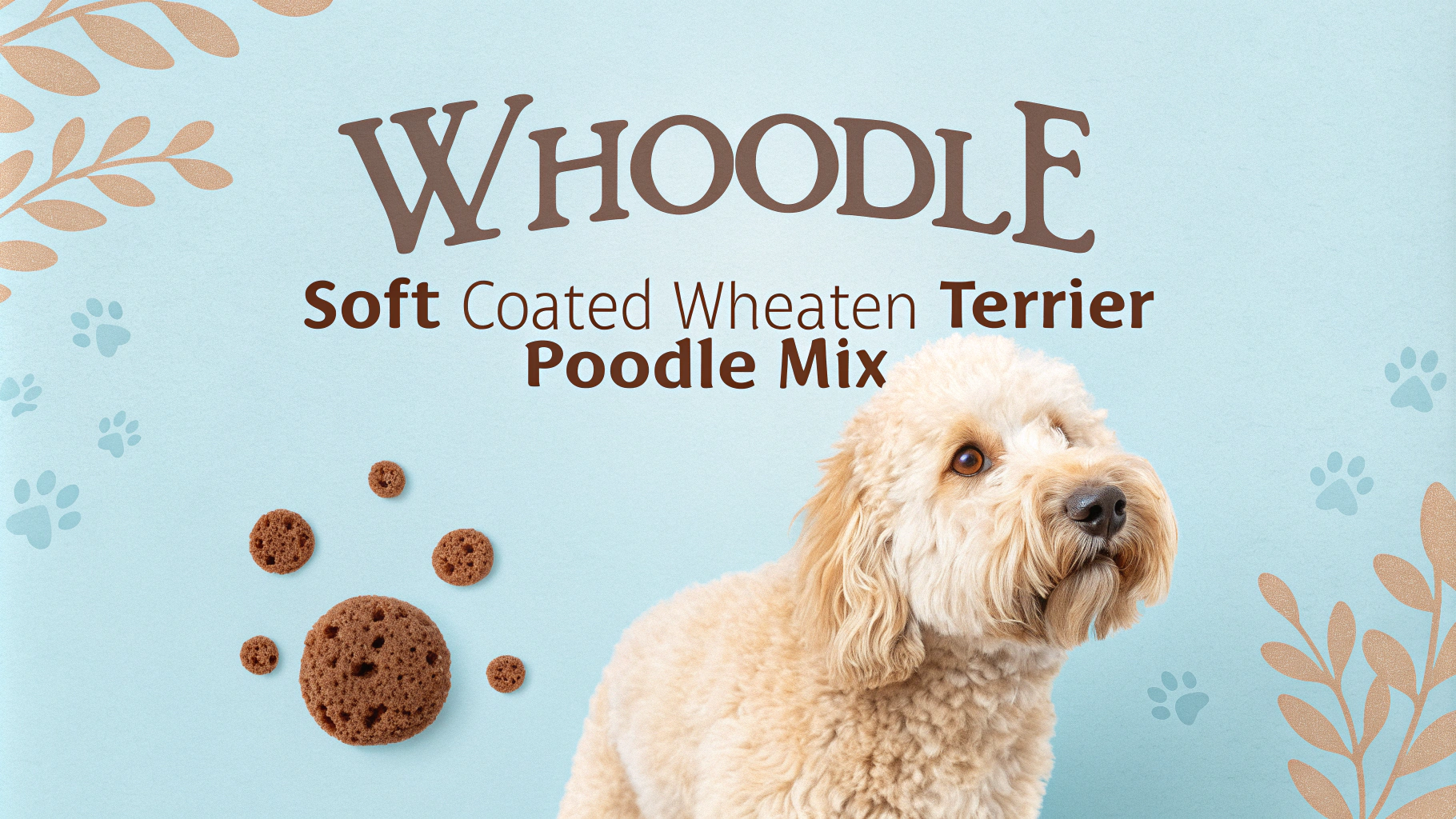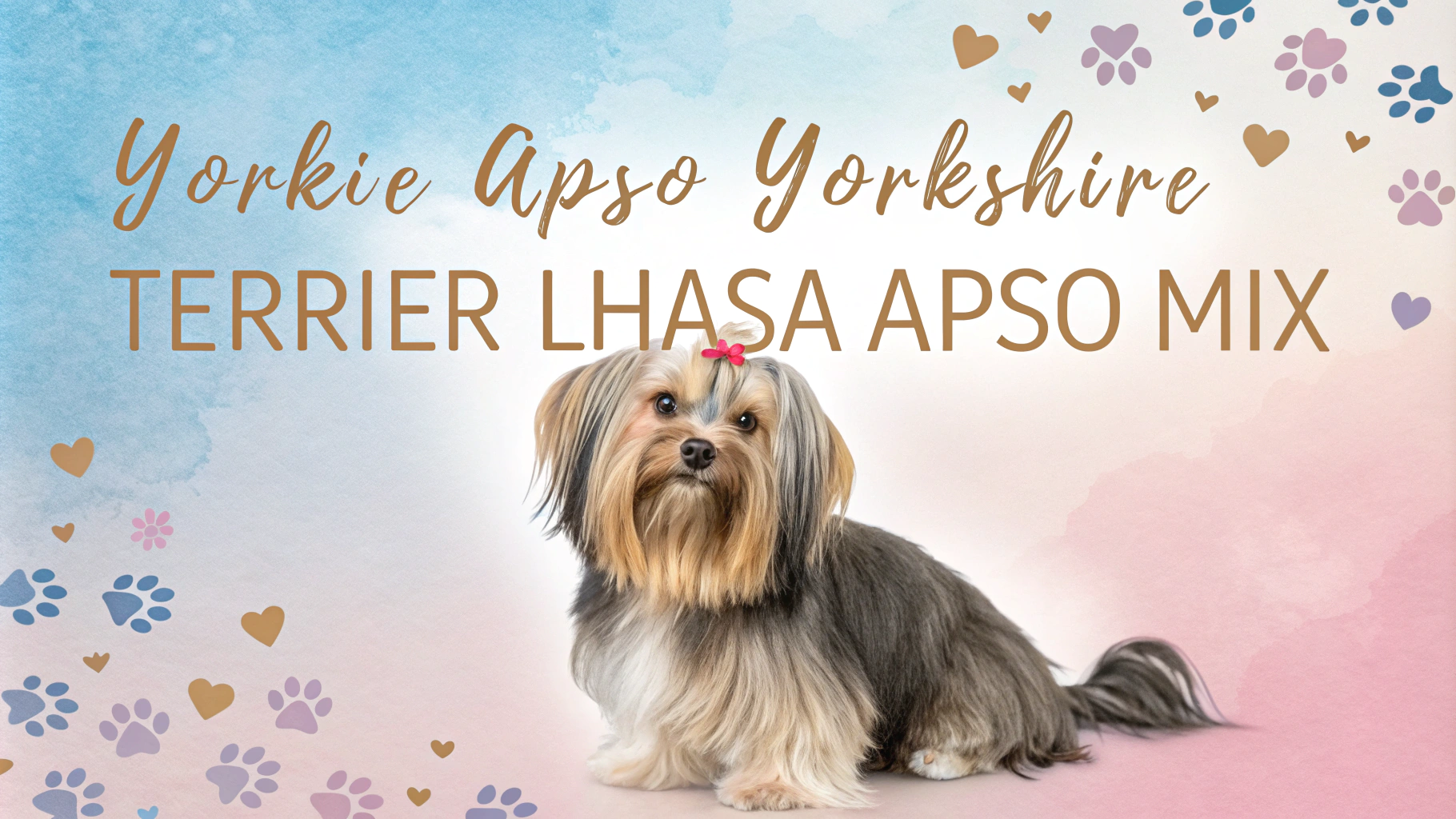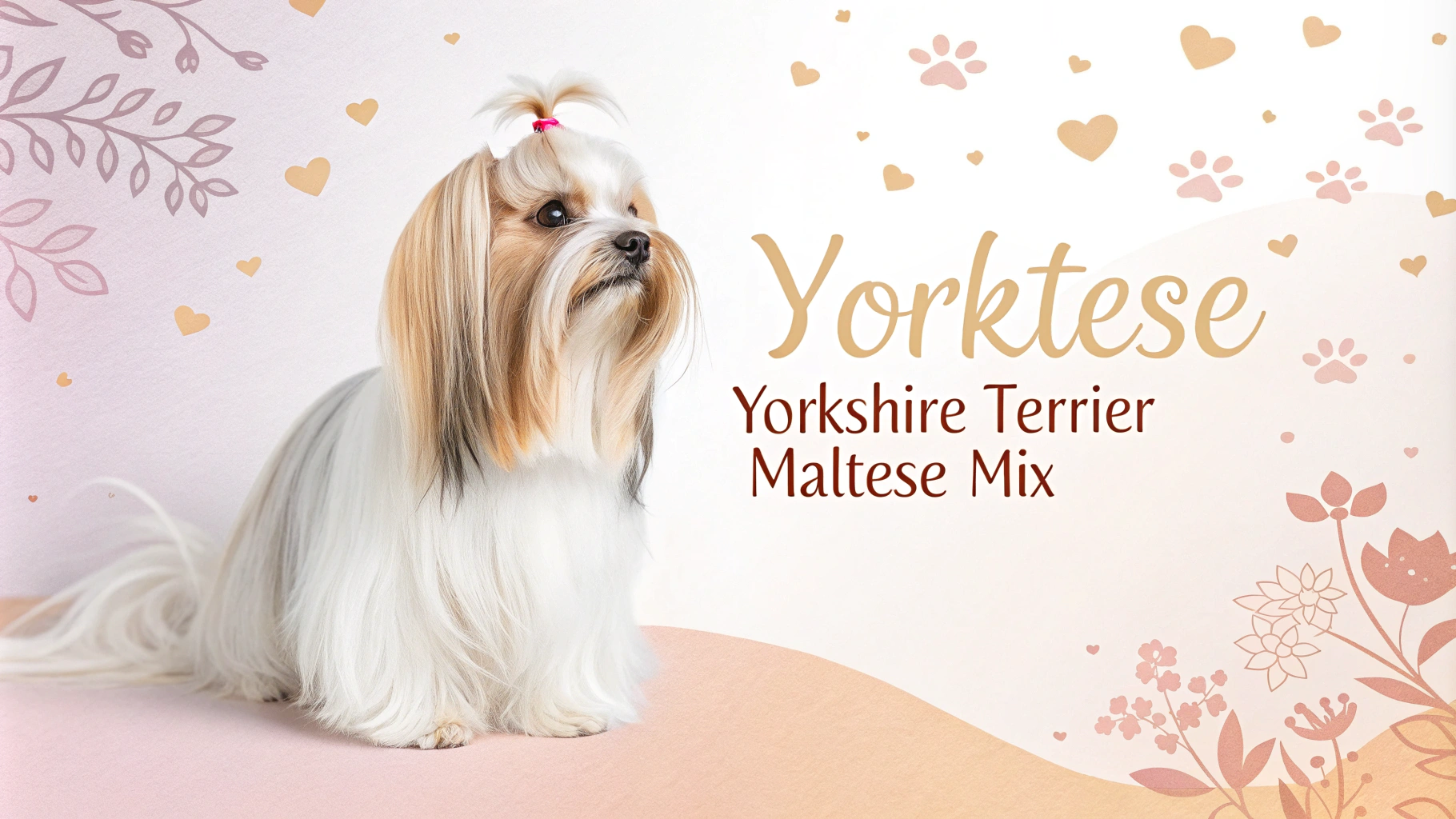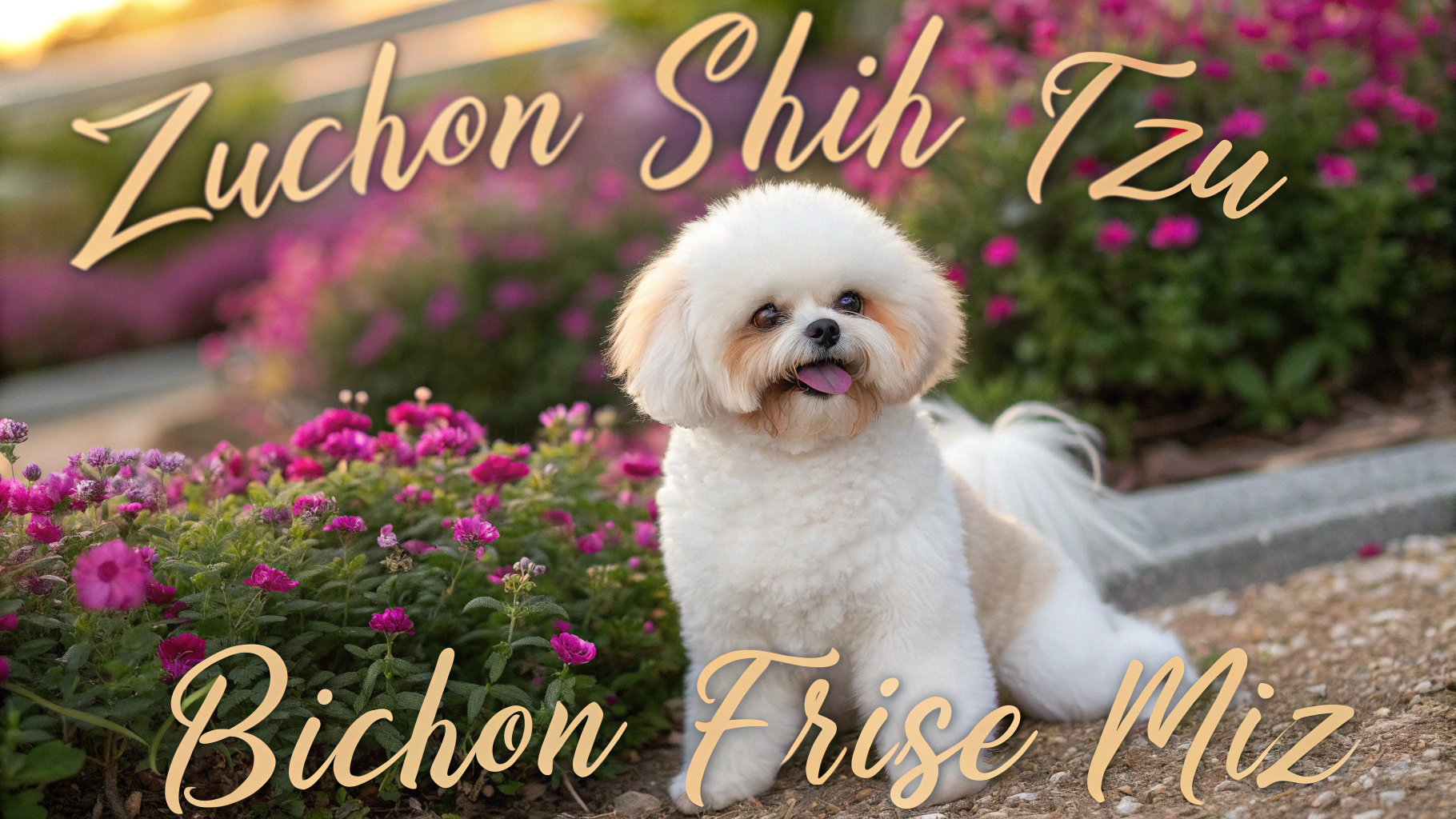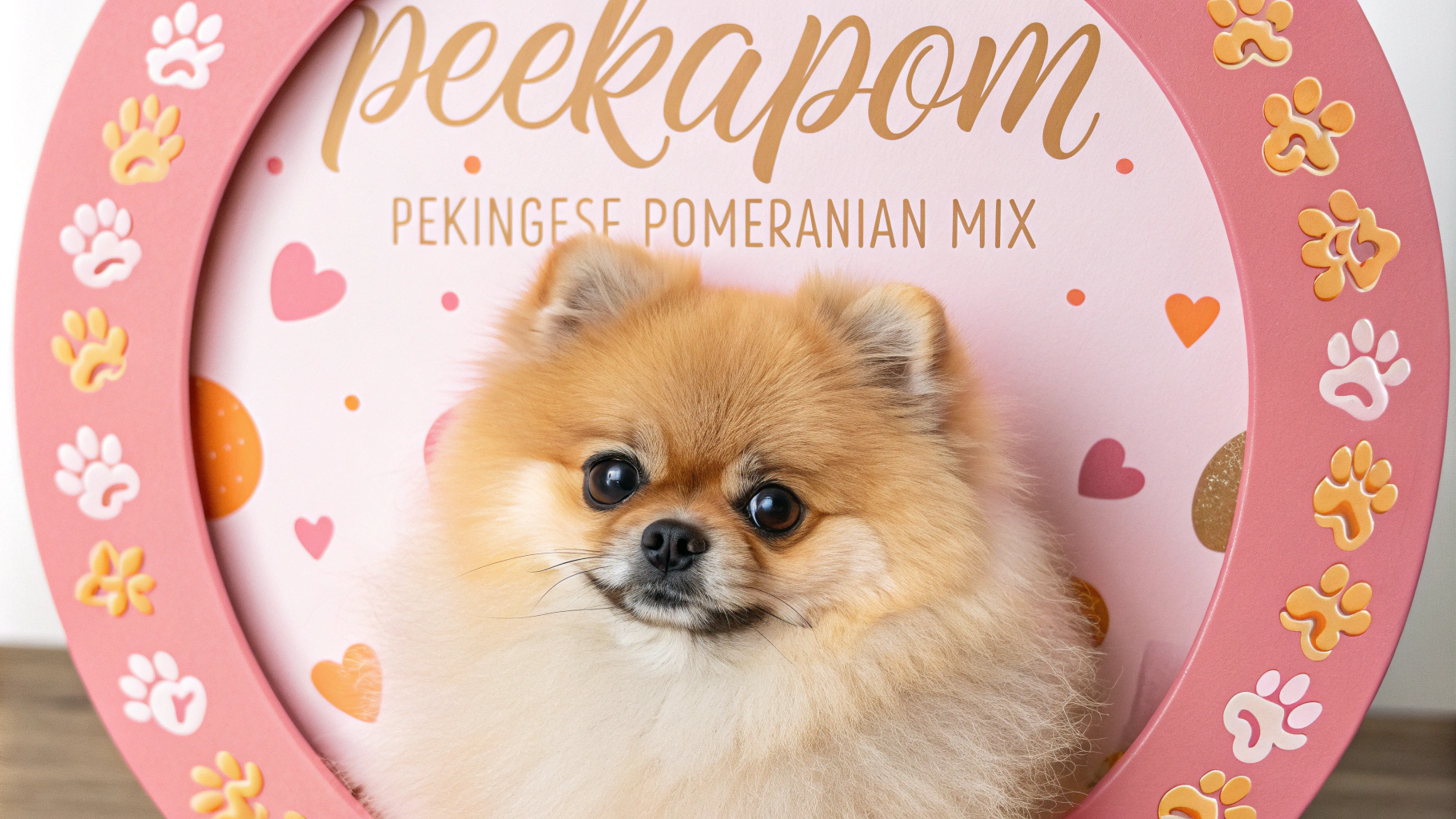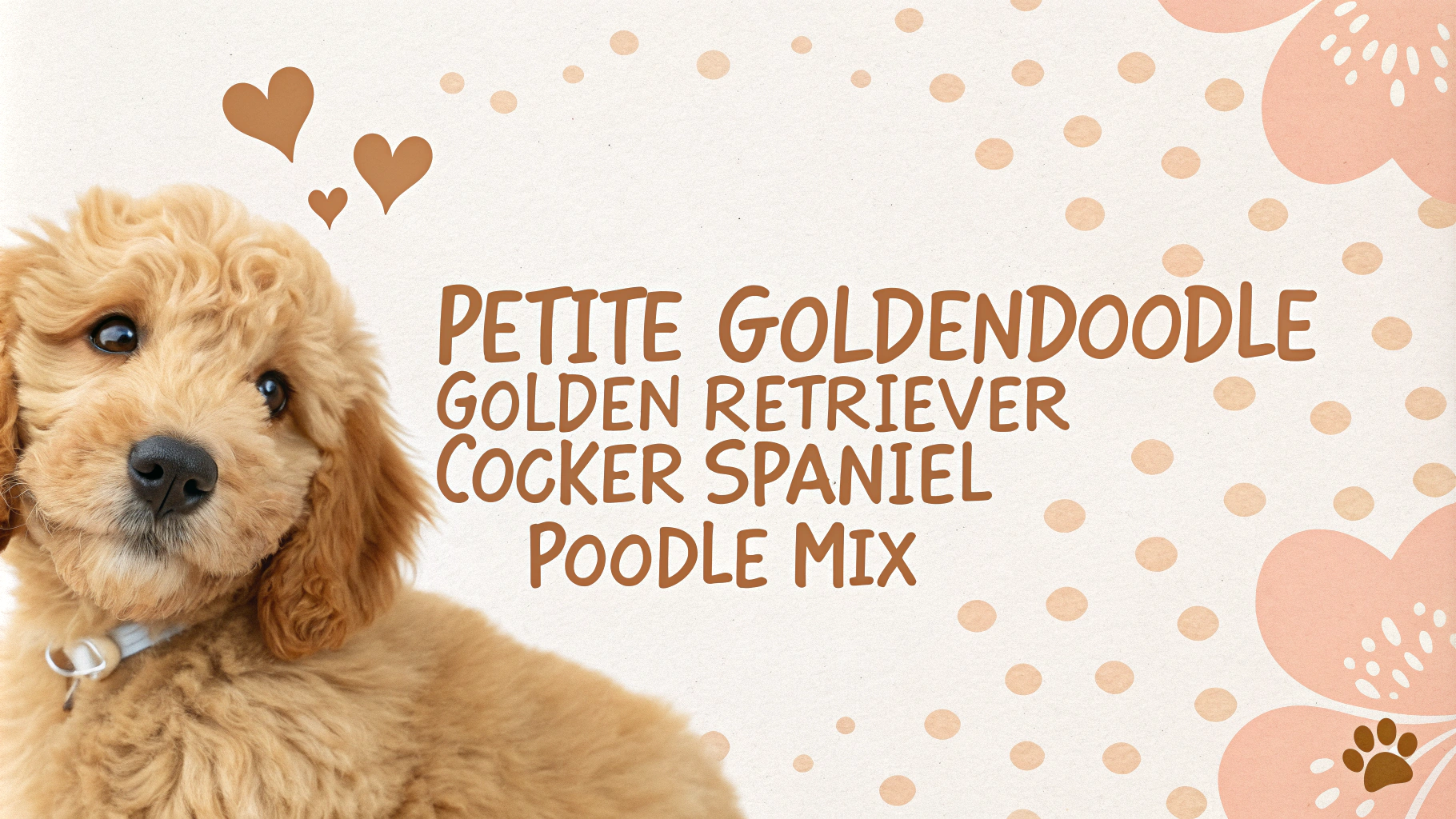The Poogle is a charming mixed breed dog resulting from crossing a Beagle with a Poodle. This designer breed combines the intelligence and low-shedding coat of the Poodle with the friendly and curious nature of the Beagle. Poogles are known for their playful personalities and adaptability, making them suitable for various living situations and family types. As with any mixed breed, individual Poogles may inherit different traits from either parent breed, resulting in a unique and lovable companion.
Key Facts
- Size: Small to medium, typically 9-16 inches tall
- Weight: 11-25 pounds
- Lifespan: 12-15 years
- Coat: Can vary from short to medium length, often wavy or curly
- Colors: Wide variety, including black, white, brown, and combinations
- Temperament: Intelligent, friendly, and energetic
- Good with children: Yes, generally good with supervised interactions
- Good with other pets: Usually, but early socialization is important
- Shedding: Low to moderate, depending on which parent’s coat is inherited
- Exercise needs: Moderate to high
- Trainability: Generally easy to train due to intelligence and eagerness to please
Character Traits
Poogles inherit a blend of characteristics from their Beagle and Poodle parents, resulting in a dog with a unique and often delightful personality. These mixed breed dogs are typically intelligent, curious, and energetic, combining the Poodle’s sharp mind with the Beagle’s inquisitive nature. Poogles are often friendly and affectionate with their families, enjoying cuddles and playtime in equal measure.
Their social nature makes them good companions for families, singles, and seniors alike. Poogles usually get along well with children and other pets when properly socialized. They can be adaptable to various living situations, from apartments to houses with yards, as long as their exercise needs are met.
Inheriting the Beagle’s keen sense of smell, Poogles may have a tendency to follow their noses, which can sometimes lead to wandering or distraction during walks. They often possess a playful and sometimes mischievous streak, keeping their owners entertained with their antics. While generally not excessive barkers, they may alert their owners to visitors or unfamiliar sounds, a trait that can be managed with proper training.
Poogles typically bond strongly with their families and may experience separation anxiety if left alone for long periods. Their intelligence and eagerness to please usually make them receptive to training, though they may inherit some stubbornness from the Beagle side, requiring patience and consistency in training approaches.
History & Origins
The Poogle, like many designer dog breeds, doesn’t have a long documented history. This mixed breed likely emerged in the late 20th or early 21st century as part of the growing trend of creating hybrid dogs. The exact origin and the first intentional breeding of a Beagle with a Poodle are not well-documented.
To understand the Poogle, it’s essential to look at the histories of its parent breeds. The Beagle has a history dating back to Roman times, but the modern breed was developed in Great Britain in the 1830s. Beagles were primarily bred for hunting, particularly for tracking rabbits and hares, due to their excellent sense of smell and stamina.
The Poodle, contrary to its association with France, actually originated in Germany as a water retriever. The breed was later refined in France, where it became popular as a companion dog. Poodles are known for their intelligence, trainability, and hypoallergenic coat.
The creation of the Poogle was likely motivated by the desire to combine the Beagle’s friendly nature and keen sense of smell with the Poodle’s intelligence and low-shedding coat. This mix aims to produce a smart, affectionate, and potentially more allergy-friendly dog than the purebred Beagle.
While not recognized by major kennel clubs as a standardized breed, Poogles have gained popularity as family pets due to their appealing blend of characteristics from both parent breeds. As with all mixed breeds, potential owners should be aware that traits can vary significantly between individual dogs, depending on which parent’s genes are more dominant.
Health Concerns
The Poogle, like many hybrid breeds, may inherit health issues from both parent breeds. Common health concerns include:
- Hip dysplasia: A genetic condition affecting the hip joint, more common in Poodles.
- Eye problems: Including progressive retinal atrophy (PRA) and cataracts.
- Hypothyroidism: An underactive thyroid gland, which can affect metabolism.
- Intervertebral disc disease: A condition affecting the spine, more common in Beagles.
- Ear infections: Due to floppy ears inherited from the Beagle parent.
Regular veterinary check-ups, proper diet, and exercise can help mitigate some of these risks. It’s also crucial to obtain your Poogle from a reputable breeder who conducts health screenings on parent dogs.
Exercise Needs
Poogles are energetic dogs that require regular exercise to maintain their physical and mental well-being. Their exercise needs typically include:
- Daily walks: At least 30-60 minutes of brisk walking or jogging.
- Playtime: Interactive games like fetch or tug-of-war for mental stimulation.
- Outdoor activities: Swimming, hiking, or agility training to tap into their natural instincts.
The Poogle’s exercise requirements stem from both parent breeds: the Beagle’s hunting instincts and the Poodle’s athletic nature. Without adequate exercise, Poogles may develop behavioral issues such as excessive barking or destructive chewing. It’s important to note that young Poogles should not be over-exercised to prevent damage to developing joints.
Space Requirements
Poogles are adaptable dogs that can thrive in various living situations, provided their exercise needs are met. Their space requirements include:
- Indoor space: A small to medium-sized home or apartment can suffice.
- Outdoor access: A fenced yard is beneficial but not essential if regular walks are provided.
- Safe exploration area: Poogles inherit the Beagle’s curiosity and may wander if not properly contained.
While Poogles can adapt to apartment living, they do best in homes with some outdoor space. Their moderate size allows them to navigate indoor spaces comfortably, but they appreciate having room to play and explore. Regardless of living space, ensuring regular exercise and mental stimulation is crucial for a happy, well-adjusted Poogle.
Nutrition & Feeding
Proper nutrition is essential for maintaining the health and longevity of a Poogle. Their dietary needs include:
- High-quality dog food: Choose a brand formulated for medium-sized breeds with moderate to high energy levels.
- Portion control: Follow feeding guidelines based on age, weight, and activity level to prevent obesity.
- Meal frequency: Adult Poogles typically do well with two meals per day.
- Treats: Use in moderation for training, not exceeding 10% of daily caloric intake.
Poogles may inherit the Beagle’s tendency to overeat, so it’s important to monitor food intake carefully. Avoid feeding table scraps, as this can lead to weight gain and nutritional imbalances. Always provide fresh, clean water. Consult with a veterinarian to tailor the diet to your individual Poogle’s needs, especially if they have any health concerns or allergies.
Grooming Tips
Grooming a Poogle requires regular attention due to their Poodle heritage. Their coat can vary from wavy to curly, and may be low-shedding or non-shedding. Brush your Poogle’s coat 2-3 times a week to prevent matting and tangling, using a slicker brush or metal comb. Professional grooming every 6-8 weeks is recommended to maintain coat health and appearance.
Pay special attention to the following areas:
- Ears: Clean regularly to prevent infections, especially if they have floppy Beagle-like ears
- Eyes: Wipe around the eyes to remove any discharge
- Teeth: Brush 2-3 times a week to maintain dental health
- Nails: Trim every 2-3 weeks or as needed
Bathe your Poogle every 4-6 weeks or as needed, using a mild dog shampoo. Be sure to rinse thoroughly to prevent skin irritation. Regular grooming sessions also provide an opportunity to check for any skin issues, lumps, or abnormalities.
Training Approach
Training a Poogle requires patience, consistency, and positive reinforcement techniques. These intelligent dogs inherit the Poodle’s eagerness to please and the Beagle’s curious nature, making them generally responsive to training. However, they may also inherit the Beagle’s stubbornness, so it’s important to start training early and remain persistent.
Key training approaches for Poogles include:
- Positive reinforcement: Use treats, praise, and toys to reward good behavior
- Short, frequent sessions: Keep training sessions to 10-15 minutes to maintain focus
- Socialization: Expose your Poogle to various people, animals, and environments from a young age
- Consistency: Establish clear rules and expectations, ensuring all family members follow them
Focus on basic obedience commands such as sit, stay, come, and leave it. Poogles may have a strong prey drive inherited from their Beagle parent, so recall training is particularly important. Scent work and puzzle toys can be excellent ways to engage their intelligent minds and satisfy their curious nature. With patience and consistency, Poogles can become well-behaved, obedient companions.
